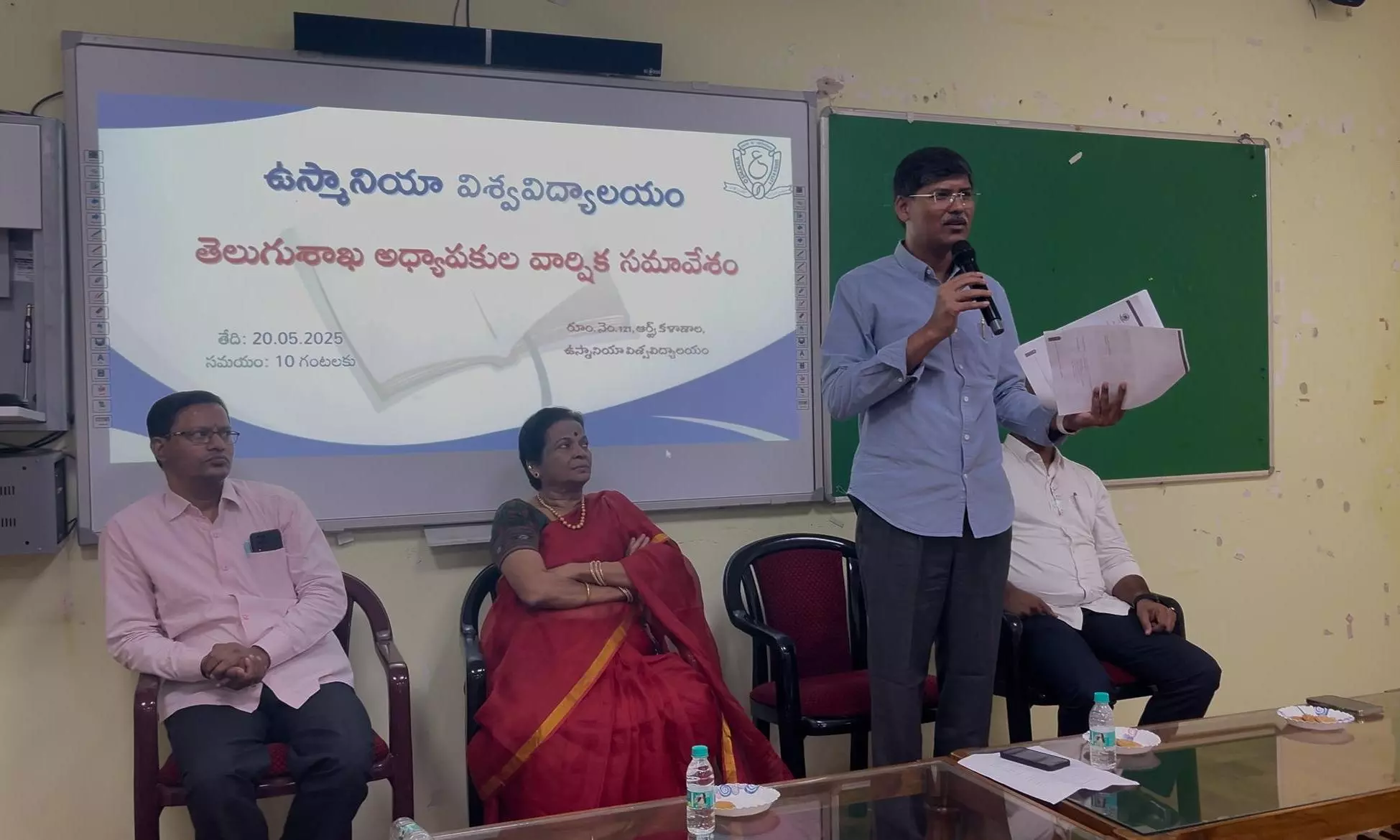Telugu Teachers Oppose Plan To Cut Second Language Credits In Degree Courses
“This isn’t just about credits. This is about the place of a mother tongue in higher education, especially in a state like Telangana,” said senior faculty member Dr Emmidi Mahender.

Hyderabad: Telugu language teachers at Osmania University have strongly opposed the Telangana State Council of Higher Education’s (TSCHE) recent proposal to reduce second language credits in undergraduate courses from 20 to 12. At their annual meeting held at the Arts College, they warned that the move could jeopardise students’ future academic prospects and restrict their eligibility for postgraduate and teaching careers in the language.
The proposal, presented during an online meeting held on May 14 by TSCHE with registrars and heads of language departments from state universities, was met with widespread resistance. Teachers pointed out that existing rules require students to complete 20 credits in a language at the undergraduate level to be eligible for postgraduate studies. Cutting credits to 12 would leave students ineligible for MA and PhD courses in Telugu.
“This isn’t just about credits. This is about the place of a mother tongue in higher education, especially in a state like Telangana,” said senior faculty member Dr Emmidi Mahender. “Reducing the number of credits effectively shuts the door on future academic and job opportunities for our students.”
The meeting passed a series of resolutions demanding that Telugu be treated as a core subject in social sciences under the DOST system for degree college admissions and that the option be extended to BSc students as well under the CBCS framework. Teachers also expressed concern that the state’s move goes against the spirit of the National Education Policy (NEP), which encourages teaching in mother tongues, even for technical and professional courses.
“States like Madhya Pradesh and Uttar Pradesh have started engineering and medical education in Hindi. But in Telangana, we’re undermining our own language,” said another participating lecturer.
The teachers argued that reducing the role of Telugu in degree programmes would not only lead to fewer research scholars in the field but also disqualify students from becoming school teachers in institutions like Navodaya and Kendriya Vidyalayas, where three years of Telugu at the degree level is mandatory for eligibility.
They also cautioned the government against viewing language through a purely employment lens. “Language is not just a tool for jobs. It carries a people’s history, culture, and values,” said Mahender. “Through literature, students understand compassion, empathy, and ethics — things no technical subject can teach. Without this, we are raising a generation that may know skills, but not society.”

